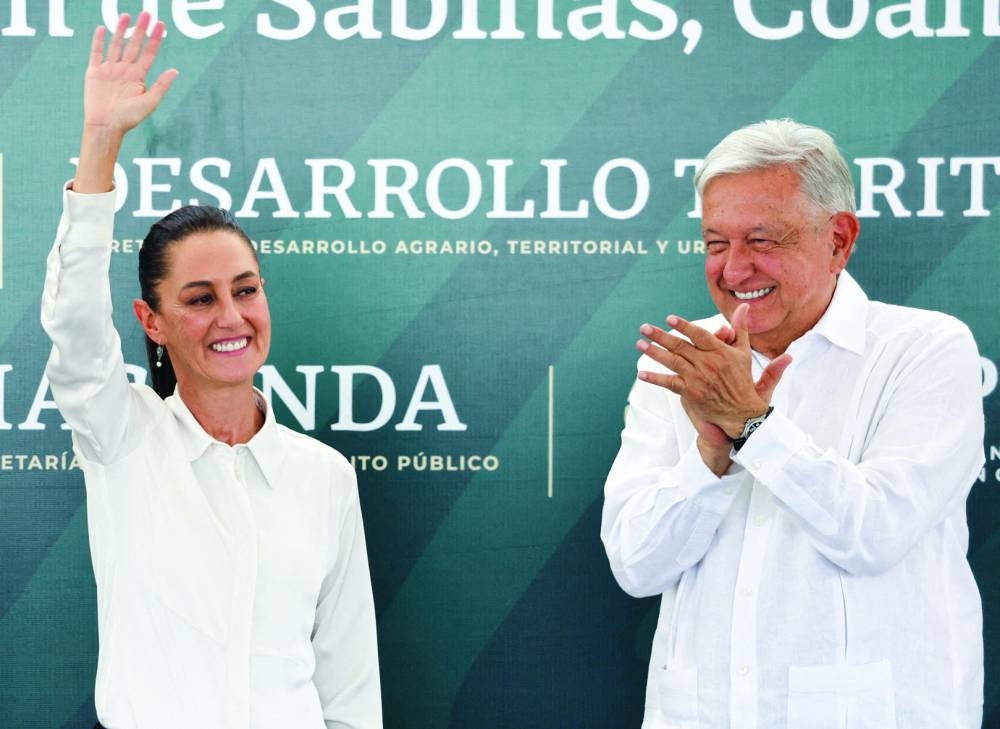Mexico’s ruling left-wing coalition won large majorities in Congress, the country’s elections authority confirmed on Friday, potentially enabling it to enact controversial constitutional reforms that have prompted US worries.
The bloc led by the Morena party of popular outgoing president Andres Manuel Lopez Obrador will have 364 of the 500 seats for the next three years in the lower chamber, more than the two-thirds majority needed to amend the constitution, according to the final distribution of seats after the June 2 elections.
In the Senate it will have 83 of 128 seats, three votes short of the two-thirds supermajority – though analysts believe it can easily obtain votes to make up the difference.
The new parliament will convene on September 1.
With its enlarged majority, Morena and its allies will seek to push through 23 constitutional reforms that Lopez Obrador hopes to leave as a legacy to his predecessor and fellow party member, Claudia Sheinbaum, when she takes office on October 1.
Sheinbuam, who will be the country’s first woman president, won a landslide victory in the June 2 elections, but shortly afterward the Mexican stock market and currency saw a sharp decline over investor worries about the proposed reforms.
Chief among them is a plan to overhaul the judiciary by directly electing judges, in the name of the fight against corruption and privilege.
In her first press conference after the election, Sheinbaum pledged a “broad consultation” on the proposals, saying that it would include bar associations, law schools and judges.
The United States – Mexico’s largest trade partner by far – has expressed worries that the reform could threaten bilateral trade relations and investor confidence in Mexico’s legal framework, and represented a risk for democracy in Mexico.
On Thursday US ambassador Ken Salazar warned that the judicial reform could help cartels to influence inexperienced judges.
Canada, the third country in a major free trade partnership with the United States and Mexico, has also said its investors have concerns.
In Mexico’s Congress, 300 seats in the lower chamber and 96 senators are elected directly.
The rest are divvied out proportionally, according to results in five electoral regions.
On Friday, the National Electoral Institute (INE) certified the final distribution of seats.
Some analysts and opposition party members believe the ruling party is “over-represented”, pointing to the fact that Morena and its allies obtained 54% of the total vote but received 73% of seats.
Those objections were based on an interpretation of the electoral system prioritising representation by party rather than coalition.
The parties have until August 28 to appeal the INE’s decision to the Federal Electoral Tribunal.
“The INE neither gives nor takes away congressional or senatorial seats,” INE’s presiding counsellor Guadalupe Taddei said during the marathon seven-hour debate. “Only the citizens can do this with their vote.”
Taddei added that the body’s actions reflect “our commitment to democracy and the popular will expressed at the ballot box”.

Mexican President Andres Manuel Lopez Obrador with President-elect Claudia Sheinbaum.
